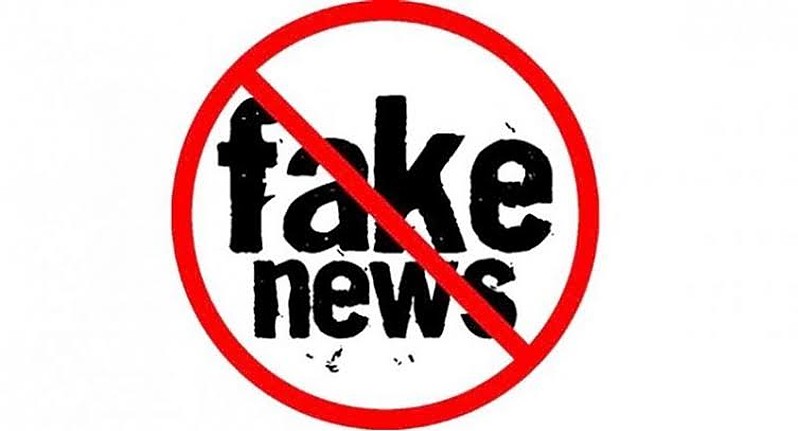Comments and Issues
The growth of fake news as a catalyst for social vices
Published
8 months agoon

Fake news is false or misleading information presented as news. Fake news often has the aim of damaging the reputation of a person or entity, with the intention of making profit either financial gain or emotional motivation. Fabricated news that is baseless but presented as being factually accurate is best described as Fake News. Misinformation in the media is not new. Historically, it has been with us since the development of the earliest writing systems.
The spread of fake news on internet is now a global issue and this confrontational subject demand rapt attention. The invention of internet gives its users power to share and read information from their comfort zone and the model of journalism started to change with the rise of internet.
The digitization of news has challenged traditional definitions of news. Online platforms provide space for non-journalists to reach a mass audience. The rise of citizen journalism challenged the link between news and journalists, as non-journalists began to engage in journalistic activities to produce journalistic outputs, including news. Citizen journalists were initially confined to blogging. Eventually, social media offered a wider platform for non-journalists to engage in journalism.
However, having a smart phone and cheap data does not qualify one as a news reporter. Journalism is a professional job that require a adequate learning and training. A graduate of unrelated course cannot just pick up the Journalism job because of his or her writing skills and access to technology without proper orientation and training.
Journalism is no longer exclusively the province of professionals. A professional is someone who has had training in his or her specific field. An individual is not allowed to practice medicine unless he is certified by a duly recognized medical school. Lawyers, chartered accountants and to an extent barbers and beauticians have to acquire a certificate that recognizes their competency. There are law and ethics of the profession of which a practicing and bonafide members must respect.
Most platforms in Nigeria have been accused of sharing fake news, frauds all over the internet in the names of celebrities, politicians , organizations and raising false alarm. In fact, people always fall victims of fraudulent and scam because someone somewhere is using fake information to defraud. It continues to occur and we should be aware and do something, to help ourselves and others.
ALSO READ: Nigeria’s Naira: Going…going…going…?
Of course, journalists are forced to publish first and verified information later because of competition for attention and exclusive news while bloggers sometimes share unverified news for competition and urge to generate traffic on website. I acknowledge that most people in Nigeria hardly verify the source of information before sharing and believing such information, thereby people are being fooled, misled, deceived and harmed.
To combat this phenomenon, the government should work in hand with media to cease fake news and to avoid tension in our society. The government and the media bodies should organise media literacy and provide reliable media outlet that are dependable. Media and information literacy campaign is the administration’s response to the disinformation and misinformation plaguing digital landscape. Bloggers should be regulated to ensure accuracy and fairness.
Moreso, it is a time for news media to tack more closely to professional standards and ethics, to eschew the publishing of unchecked information, and to take a distance from information which may interest some of the public but which is not in the public interest. This publication is therefore also a timely reminder that all news institutions, and journalists whatever their political leanings, should avoid inadvertently and uncritically spreading disinformation and misinformation.
Journalism also needs to proactively detect and uncover new cases and forms of disinformation. This is mission critical for the news media, and it represents an alternative to regulatory approaches to ‘fake news’. Encourages responsible journalism and discourages fake news.
Separate facts from opinions- we need to develop our critical thinking skills by distinguishing actual facts and someone’s opinions. Help one another and be cautious on sharing, searching and posting. Educate others and encourage your friends and family to verify before sharing. We can all play a part in promoting responsible information sharing. The function of news is to signalize an event; the function of truth is to bring to light the hidden facts.
News deals with accuracy- information is verify before it is use. Confirm different sources before you share information and do not believe until you verify. By doing this you can be a role model for others and contribute to a more informed society. Let be a generation that stands for truth and accuracy. Together we can build a society that relies on verified information.
Ayinde, Toluwase Rachael
200 level student of Mass Communication Department,
Ahmadu Bello University (ABU), Zaria, Kaduna State.
Trending

 Health & Fitness5 days ago
Health & Fitness5 days agoMalaria Vaccines in Africa: Pastor Chris Oyakhilome and the BBC Attack

 Aviation1 week ago
Aviation1 week agoWhy some airlines are avoiding Nigeria’s airspace–NAMA

 Aviation6 days ago
Aviation6 days agoJust in: Dana airline crash lands in Lagos

 Aviation6 days ago
Aviation6 days agoNSIB begins investigation into Dana Air after crash-landing incident

 Aviation6 days ago
Aviation6 days agoJust In: Dana Air plane crash-lands in Lagos

 Aviation5 days ago
Aviation5 days agoJust in: FG suspends all Dana Air operations

 Featured3 days ago
Featured3 days agoGov, Abiodun appoints Chess master, Onakoya sports ambassador

 Crime3 days ago
Crime3 days agoVandalism: Osun water corporation appeals to residents

